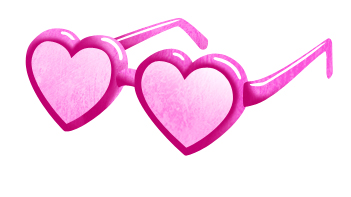Like it, or else
23 January 2014 | Non-fiction, Tales of a journalist

Illustration: Joonas Väänänen
Hitting the ‘like’ button is not only boring but also working its way from Facebook deeper into society, says Jyrki Lehtola. Surely there must be some other way of solving the world’s problems?
At the end of the autumn the theatre critic of the Helsingin Sanomat newspaper panned Sofi Oksanen’s stage adaptation of her novel Kun kyyhkyset katosivat (‘When the doves disappeared’, 2013).
That’s life. Artists struggle with their projects, sometimes for years. Then a critic takes a glance at the result and crushes it in a matter of hours.
Then there’s a huff about unfairness, the use of power and all the things artists blow off steam about when they feel that their creations have been treated unfairly. The debate is held between injured authors and sometimes the critic, but generally few others participate, and just as well.
This time, however, it was different. The panning critic caused a landslide of resentment which, within a couple of days, spread through the social networks to the old media. The object of the resentment was the critic, who had treated artists with disrespect by criticising their work.
It was not appropriate. Few of those who commented had seen the play that was the object of criticism; the main thing was that the world at large had detected lack of respect toward creative work.
Something similar had happened earlier in the autumn. The Minister of Culture (and Sport), Paavo Arhinmäki, was interviewed on the subject of culture, and one of the things he talked about was his favourite artists. Then he made a mistake. He let slip a negative comment.
The minister, who has listened to rap music since the early 1990s, said he didn’t like Finland’s most popular rap artist, Cheek. According to the minister, Cheek’s music is ‘crud’.
My goodness, the tears, the rage. You’re not allowed to say that! In addition to Cheek himself, the minister had offended the tens of thousands of children who like Cheek. Now the minister must say sorry.
Among the weeping, there was some attempt at debate. All art is equally valuable. You shouldn’t divide cultural products into good and bad. All cultural workers should be supported equally.
Not everything should be supported.
Things which are badly thought out, carelessly executed, technically awkward and opportunistically motivated may be criticised. Art may be criticised. The need for self-expression is not a gift that should always be encouraged. In some people it needs to be eliminated so that they do not wander the wrong roads, but find their way home safely without injuring themselves too badly.
Criticism does not exist to serve the artist, but the public. And even that is too limited a view, as the best critics – for example Dorothy Parker, Craig Brown, James Wood or Clive James – do not require the reader to be familiar with the object of their criticism, but work splendidly on their own terms.
And since when have we had a duty of care for the whole world, constantly worrying that other people are so sensitive that they may not be able to withstand criticism? What right do we have to make assumptions about another person’s vulnerability or strength?
Culture is debate, often stringent, about values, making, modes of expression, and it has to be possible to say things clearly. After all, it is motivated by a passion for the subject, a desire to see and experience something better, unlike the increasingly ubiquitous opinions in which art is understand by the on-the-other-hand-this, on-the-other-hand-that method.
Equal encouragement only leads to problems. When everything is allowed to live, nothing emerges. The few flowers are lost in the weeds.
Cultural criticism has always been an arena of hard words. Things are said straightforwardly, opinions are expressed thoroughly. Why should that be considered problematic? Why do we try to bring forced positivity and politeness to an area where it is not at home and where it is of no use to anyone?
This may sound a little like unintentional self-parody by a middle-aged man, but I blame Facebook and the code of manners that has permeated everything from there.
On Facebook, the world is nice and everyone is nice to each other. On Facebook, nothing is ever stupid, embarrassing or pitiful, and if it is, no one says so. There’s no ‘Don’t like’ button.
And now that compulsory sole alternative, ‘like’, is penetrating ever deeper into society. In many areas, things are getting worse: unemployment is spreading to places it wasn’t supposed to; money is being lost; there is much that is bad or sad in the world.
Except that there isn’t. With a different, enthusiastic attitude, after all, everything looks better. Let’s support each other and ourselves. Let’s like everything, let’s see even famine in a positive light, and the world will be a better place.
It won’t. Clicking the ‘like’ button will only, click by click, make the world slightly duller.
Translated by Hildi Hawkins
No comments for this entry yet
